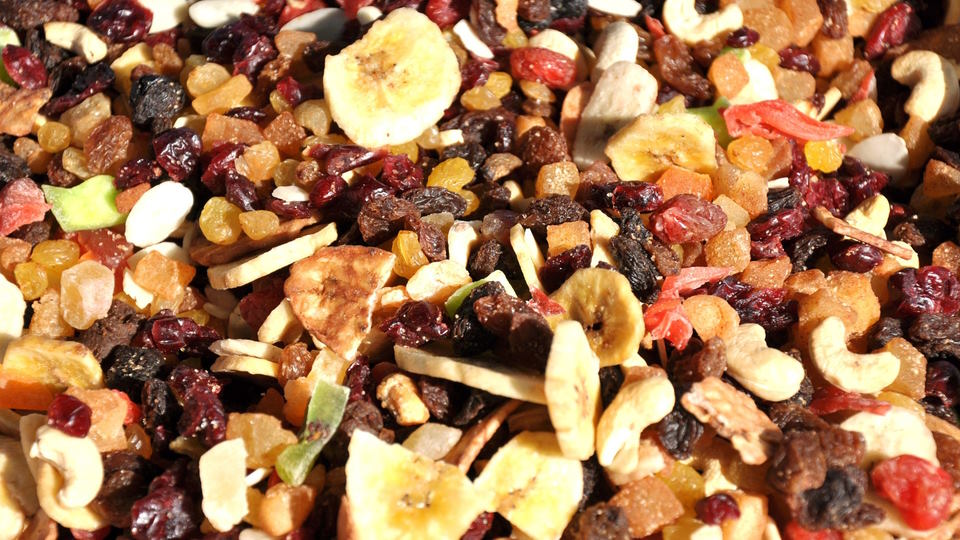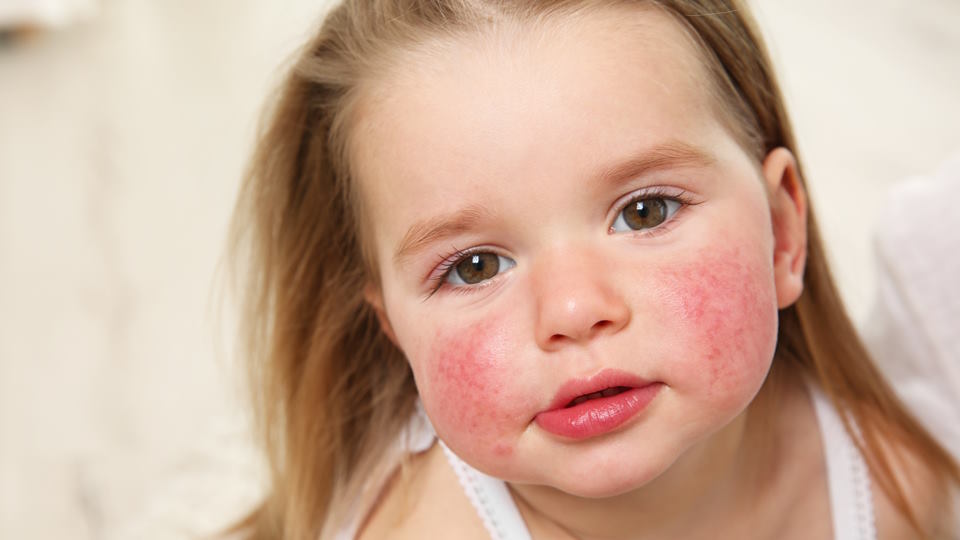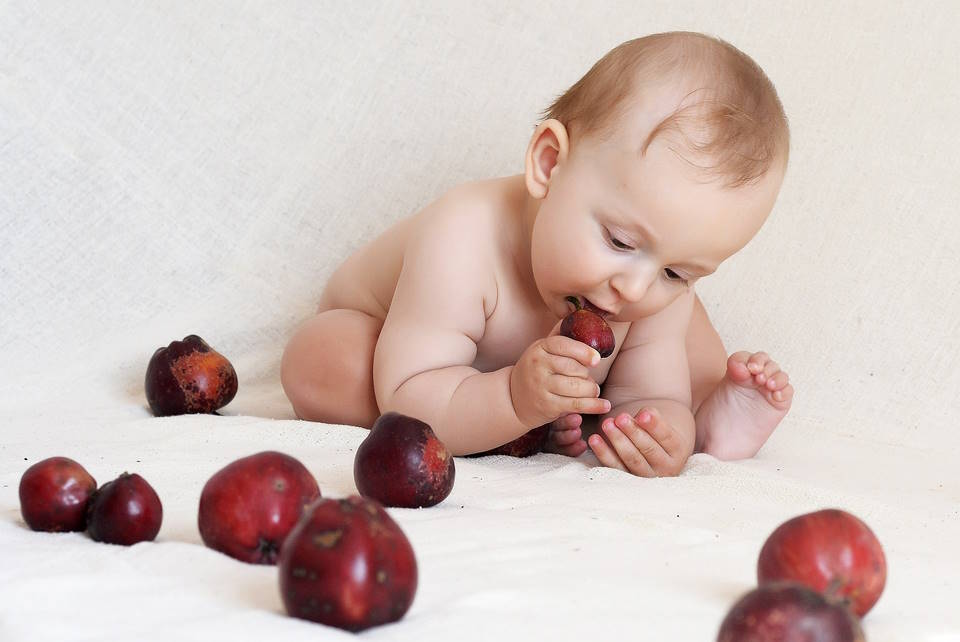Introduction
In today’s world, parents have more awareness of their baby’s nutritional needs than ever before. With the wide variety of food, drinks, and supplements available for babies, it can be difficult to know which ones are safe for them to consume. This article will discuss the types of foods that should be avoided to ensure your baby’s health and well-being.
Foods to Avoid for Babies
Babies under the age of one should not be given cow’s milk, soy milk, flavored milks, kefir, yogurt, or ice cream. These items provide too much fat, cholesterol, and sugar for babies’ developing digestive systems and can cause digestive troubles. Additionally, the risk of choking is increased when solid foods are given to babies before they have mastered the art of chewing properly.
Honey is also a food that should be strictly avoided for babies under the age of one. It can contain botulism spores which can cause a serious and sometimes deadly illness. Babies’ immune systems are not mature enough to combat this infection so honey should not be given until the baby turns one year old. Additionally, any products that contain uncooked eggs, such as cookie dough or cake batter, should also be avoided until they are at least one year old.
Foods high in sugar, including candy, cakes, and pastries, should be avoided for babies of all ages. These foods can put their teeth and overall health at risk and lead to unhealthy eating habits. Additionally, added sugar in drinks such as juices, sweet tea, soft drinks, and sport drinks should be avoided as much as possible as it can lead to tooth decay and/or weight gain.
The Risks of Restriction: Understanding the Foods That Are Off-Limits for Babies
When it comes to introducing solid foods to babies, restrictive diets can have detrimental effects on their health. Babies need exposure to a variety of foods to develop healthy taste buds and form healthy eating habits. It can also be a source of nutrition and can prevent nutrient deficiencies. Unfortunately, there are certain foods that are off-limits for babies and understanding the risks of restriction is important.
Babies under the age of one should avoid the following foods:
- Honey
- Dried fruits, which can be a choking hazard
- Raw and undercooked meats, seafood, and eggs
- Nuts and seeds
- Cheese
- Foods containing caffeine, such as coffee, tea, and chocolate
- Cow’s milk
- High-sodium foods, such as chips and salted snacks
Also, it is important to remember that babies should not be given honey until they are at least 12 months old, as it can cause botulism in infants. Furthermore, whole nuts and seeds should not be given to babies, as these can be a choking hazard.
Finally, there is a risk of allergic reaction to some of these foods before the age of one. To reduce the risk of a reaction, it is recommended that parents introduce one new food at a time and be mindful of any signs their child may have an allergy.
Dangers of Early Exposure: The Potential Consequences of Feeding Babies Restricted Foods
Babies who are exposed to a limited variety of foods early in life may not receive the full range of nutritional benefits associated with a varied diet. Initial exposure to a small number of foods could limit their ability to accept other tastes and textures introduced at a later stage. Additionally, restricted diets during early childhood can lead to issues with growth and development of the digestive system, which can cause gastrointestinal issues, allergies, and nutrient deficiencies in the future.
Parents and caregivers should ensure that a variety of foods are available for infants and young children, as well as introduce them to a range of food textures. Choosing nutrient-rich options can help toddlers get the necessary vitamins and minerals needed for proper growth. Additionally, providing foods in the correct portion sizes for childrens’ age and appetite can help ensure that necessary nutrients are received in the proper quantities.
The Root Cause: Why Some Foods Are Considered Dangerous for Babies
Babies have very different digestive systems than adults, which is why there are certain foods that should be avoided until a baby reaches a certain age. This is because the digestive system of a baby is not sufficiently developed for them to digest the same foods that an adult can. For example, because their digestive system is more immature, babies are unable to break down hard or fibrous foods, such as nuts, seeds, tough meat, and large pieces of fruit and vegetables.
These foods can cause a baby to choke, as well as cause an obstruction in their intestines, leading to discomfort and potential medical complications. Furthermore, some foods, such as honey, can contain spores that babies are not yet able to process and are, therefore dangerous for them to consume. Additionally, some foods, such as unpasteurized milk, can contain bacteria that babies cannot process and could cause them to become sick.
Lastly, cow’s milk is not typically a recommended food source for babies under one year of age because they have difficulty digesting the proteins found in cow’s milk, leading to discomfort and potential medical complications.
Are There Specific Age Restrictions for Foods That Are Prohibited for Babies?
Yes, there are specific age restrictions for foods that are prohibited for babies. According to the American Academy of Pediatrics (AAP), infants should not consume foods or drinks other than breast milk or formula before six months of age. At six months, infants can begin to eat solid foods such as pureed vegetables, fruits, and cereals. By eight months, infants should begin to slowly introduce finger foods. Whole milk, unpasteurized dairy products, honey, some types of fish, and certain types of nuts may not be safe for babies under one year old.
It is important to be aware of the potential for allergies and choking hazards when introducing new foods to your baby. The AAP also recommends that parents speak to their pediatrician before introducing any new foods to their child. The pediatrician can provide guidance on the best times to introduce new foods and any potential risks or allergies.
Cultural Differences: Are There Any Ethnic or Cultural Differences in Foods That Are Off-Limits for Babies?
In general, the same foods that are off-limits for all babies, regardless of ethnicity or culture, are highly processed and/or sugary foods such as cakes and cookies, chips, and other salty snacks. For some cultures, certain foods that are traditionally made with ingredients that are not suitable for babies must also be avoided. For example, many Asian dishes can be high in salt and spices, which can cause an upset stomach in some babies and are often off-limits.
Additionally, some cultures may use specific ingredients that can be allergenic for babies, such as cow’s milk in some Middle Eastern cultures, and these should only be introduced after careful consideration and consultation with a physician. Ultimately, no matter what culture you have or what ingredients you use, it is important to ensure that the foods your baby eats are age-appropriate and healthy, and the best way to do this is to carefully monitor their diet and nutritional needs.
Safeguarding Health: How Can Parents Ensure Their Baby’s Diet Does Not Include Restricted Foods?
Ensuring a safe diet for a baby is an important part of keeping them healthy and free from potential allergies or illnesses. Parents need to be aware of the types of food that are not recommended for babies, and how to provide the greatest variety of foods while staying as safe as possible with their choices.
Restrictions on Diet
The National Health Service (NHS) recommends that babies are not given any food that is high in sugar or salt, or that contains additives or food colorings. In addition, foods that may cause allergic reactions need to be avoided, including those that contain gluten, nuts, eggs, dairy, seafood and citrus fruits. Care should also be taken with foods that could be a choking hazard, such as grapes and cherry tomatoes.
Offer Variety
It is recommended that babies are offered a variety of foods so that their diet is balanced and safe. This should include cooked vegetables, fruit, proteins and carbohydrates, as well as some dairy products. The NHS recommends that babies should be introduced to different flavors and textures, which may include soft finger foods and mashed foods. Parents should ensure that all the food given to their baby is cooked thoroughly, with no raw or under-cooked meat, fish or eggs.
Identifying Allergies
It is important that parents are aware of the symptoms of food allergies, so they can identify them quickly if they occur. Symptoms can include a rash, swollen lips, difficulty breathing, diarrhoea, vomiting, and chest tightness. If any of these symptoms occur after a baby has eaten, parents should visit a doctor or hospital immediately.
Monitor Feeding Habits
Finally, parents should be sure to monitor their baby’s feeding habits, looking for patterns or signs of a sensitivities to certain types of food. Keeping records of the food that is given and any possible allergic reactions can be helpful when speaking to a doctor.
Alternatives Available: What Are the Alternative Food Options for Parents Who Are Unsure About What Foods Their Baby Can or Cannot Eat?
When deciding what to feed your baby, there are many alternatives to consider. The most important thing is always to consult your pediatrician to get the best advice for your baby’s specific needs, but there are several alternatives available to parents looking to provide their baby with nutritious and healthy food.
One of the most popular options is to make your own baby food. This allows parents to ensure that their baby is getting the proper nutrition and all the vitamins and minerals they need, as well as providing them with food that is free of preservatives and added sugar.
There are many recipes available online and in cookbooks that will help you create tasty, nutritious food for your baby. You can also purchase baby food in jars or pouches, which can be frozen and kept fresh. Just make sure to check labels for added sugar, preservatives, and other additives.
Some parents also opt for a more “finger food” approach, where the baby is given soft, easy-to-pick-up pieces of food and allowed to self-feed. You can provide a variety of soft fruits, cooked vegetables, and other tasty and healthy snacks that your baby can hold and easily chew. Just make sure to check with your doctor to ensure that your baby is developmentally ready to try this approach.
Finally, there are many pre-made baby food products available that can provide parents with a convenient and easy way to feed their baby. These products come in a variety of flavors and textures and can be tailored to your baby’s specific needs. Just make sure to read labels to ensure that there are no added sugars or preservatives, and that the food contains essential vitamins and minerals.
No matter what approach you choose for feeding your baby, the best advice is always to consult your pediatrician for their opinion and recommendation. The ultimate goal is to provide your baby with nutritious and delicious food that will help them grow and develop.
Importance of Avoidance: How Vital Is It to Avoid Restricted Foods When Feeding Babies and Why?
It is important to carefully consider what and when to introduce certain foods to babies, as some are restricted due to potential health risks. A baby’s digestive system functions differently than that of an adult, thus requiring parents to pay special attention to what types of foods they give their children. It is important to avoid feeding babies any food that may be unsafe and cause harm.
Foods that are restricted for young babies include cow’s milk, honey, undercooked eggs, some types of fish, highly processed meats and unpasteurized cheese. These items can contain dangerous bacteria, which can cause severe digestive upset and potentially cause long-term health problems. Cow’s milk can also be difficult for a baby’s body to digest and may lead to iron deficiencies and anemia. Honey can contain spores of the dangerous bacteria Clostridium botulinum, which can lead to botulism in infants.
Choking is also a risk that parents have to consider when feeding their babies. Certain foods, such as nuts, popcorn, raw vegetables, and hard candy can easily become lodged in a baby’s throat and can lead to severe injury or even death.
It is essential that parents provide the right types of food to their babies in order to ensure proper health and development. It is also important to introduce foods in stages, as an infant’s digestive system is still developing. Additionally, good nutrition lays the foundation for a lifetime of healthy eating habits.
A Journey Towards Optimal Nutrition: The Significance of Understanding the Foods Prohibited for Babies
Proper nutrition is important for the health and development of a baby, as it provides essential nutrients for physical and cognitive growth. Babies benefit significantly from breast milk, which is the natural source of nutrition for new-born infants. But as the baby grows, there are certain foods that can be dangerous for the baby’s health. This article will explore the significance of understanding the foods prohibited for babies and their effects.
Effects of Eating the Wrong Foods
Foods which are not suitable for babies can cause several health problems and some of them might be harmful enough to cause long-term damage. Here are some of the short and long term effects of eating the wrong foods:
- Stomach pain
- Diarrhoea
- Risk of allergies
- Malnourishment
- Growth retardation
Foods That Are Unsafe for Babies
New-born babies should only be fed breast milk for the first six months, and no other foods should be introduced until then. After this period, certain foods need to be avoided as they are not suitable for a baby’s digestive system. Here is a list of unsafe foods for babies:
- High-salt foods such as cured meats, chips, salty snacks and ready meals.
- Sugary foods such as cakes, biscuits and sweets.
- Raw eggs, fish, unripe fruits and vegetables.
- Processed and tinned foods.
- Whole nuts, as they pose a choking hazard.
- Honey which can be contaminated with Clostridium botulinum bacteria.
Conclusion
It is important for new parents to be aware of the potential health risks that certain foods can have on their baby. Knowing the foods which should be avoided can help parents to provide their baby with a healthy and balanced diet which is essential for their growth and development. Furthermore, it is important for parents to speak to their doctor if they have any concerns about their baby’s nutrition.














